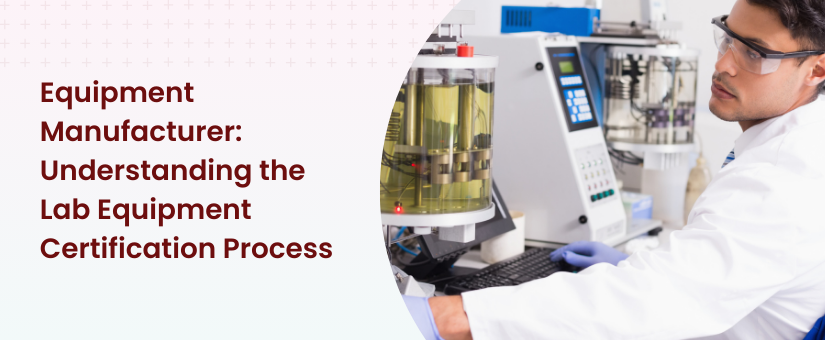In the world of manufacturing, the importance of certification can’t be understated. A certificate is more than just a piece of paper; it is an endorsement of quality, safety, and reliability. When it comes to laboratory equipment, the significance of certification is even more crucial, given that the data derived from these instruments can influence major medical or scientific decisions.
What goes into the lab equipment certification process? How do manufacturers ensure that their equipment adheres to international standards? How does Solomon Park Research Laboratories, a key player in the industry, fit into this picture with their commutable quality control and calibration materials? Let’s take an in-depth look into the world of equipment manufacturing and unravel the intricacies of the certification process.a
The Need for Certification in Laboratory Equipment
Laboratory equipment is integral to the accuracy of experiments, tests, and analyses. With stakes this high, it is vital that each piece of equipment functions optimally and reliably. Certification acts as a stamp of assurance for professionals that the equipment they use is of high quality, ensuring accurate results.
Apart from ensuring quality, certifications:
- Maintain Safety: Lab equipment often deals with potentially hazardous substances. Laboratory equipment certifications ensure that these tools are built to handle such materials safely.
- Facilitate International Trade: Certified products often have a wider acceptance in international markets. Certifications based on international standards can help manufacturers tap into global markets.
- Reduce Operational Costs: Certified equipment tends to be more efficient and less prone to malfunctions, thereby reducing costs associated with repairs or replacements.
The Certification Process
How does an equipment manufacturer get their products certified? The process generally involves:
- Pre-assessment: Before undergoing a formal evaluation, manufacturers can opt for a pre-assessment. This is a preliminary evaluation where potential pitfalls are identified.
- Testing: The equipment undergoes rigorous testing to ensure it meets specific standards. These tests check for efficiency, safety, and accuracy.
Evaluation: Once the testing phase is complete, a comprehensive evaluation is undertaken to assess if the equipment meets the stipulated standards. - Certification: If the evaluation is successful, the equipment is certified. Regular surveillance audits may follow this to ensure ongoing compliance.
- Recertification: Certifications are not forever. After a specified period, the equipment will need to be recertified, ensuring it remains up-to-date with evolving standards.
Solomon’s Role in the Certification Process
Solomon Park is renowned for providing commutable quality control and calibration materials for laboratory instruments, a pivotal part of the certification process. Our expertise in custom quality control materials ensures that laboratory equipment is calibrated accurately, a key step in achieving certification.
Our commutable quality measures (CQM) service provides materials that mimic patient samples, enabling realistic testing scenarios during the lab equipment certification process. This ensures that equipment tested with SPRL’s CQMs will provide reliable results in real-world situations.
Moreover, our comprehensive laboratory quality control services further support manufacturers by ensuring that instruments continuously adhere to the highest standards, even post-certification.
The Importance of ISO Certification
One of the most sought-after certifications for laboratory equipment is the ISO certification. An ISO-certified lab, as detailed by TotalScope, guarantees a standardized level of quality and reliability.
For equipment manufacturers, having their products certified by ISO standards ensures:
- Global Recognition: ISO certifications are internationally recognized, giving products a competitive edge in global markets.
- Consistent Quality: Adhering to ISO standards ensures consistent quality, boosting trust among end-users.
- Risk Mitigation: ISO standards often encompass safety protocols, thereby reducing risks associated with equipment malfunctions.
Concluding Thoughts
In the realm of equipment manufacturing, especially for laboratory instruments, certification isn’t a mere luxury; it’s a necessity. The process, while rigorous, ensures that equipment is safe, reliable, and of top-tier quality.
For manufacturers aiming to get their products certified, collaborating with industry experts like Solomon Park Research Laboratories can make the journey smoother. Our provision of top-quality control materials and services ensures that the equipment not only gets certified but also stands the test of time in delivering accurate and reliable results. After all, in the world of scientific and medical research, there’s no room for error, and laboratory equipment certification is the first step toward ensuring precision.
About Solomon Park Research Laboratories
Solomon Park Research Laboratories excels in the realm of hematology manufacturing, storage, and distribution with a distinct medical-grade professionalism. We are specialists in providing frozen serum and plasma, ensuring known levels of various analytes. With Lipid Reference Kits (LRC) kits trusted by over a thousand labs, SPRL guarantees accurate calibration and configuration of medical equipment. Furthermore, we offer extensive cryogenic storage, retrieval, and delivery services irrespective of the client’s size. Choosing Solomon Park Research Laboratories signifies a commitment to accuracy and prioritizing the health and wellness of patients, as we are renowned for our precisely calibrated hematology products crucial for life-saving test results. Contact us today to learn more.

